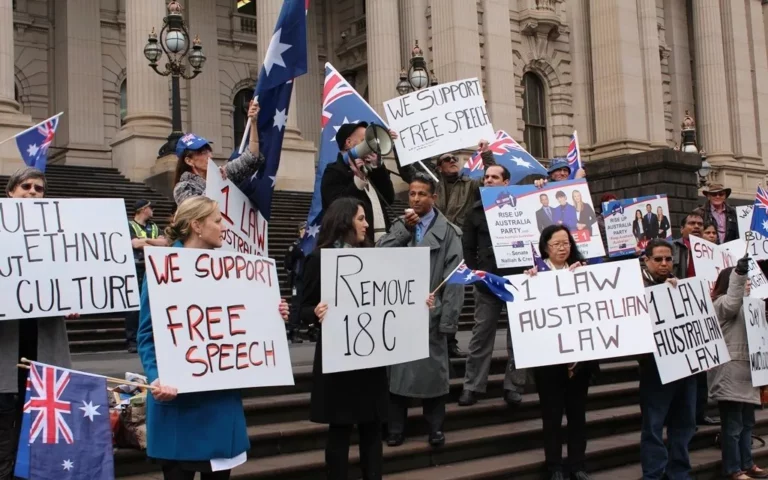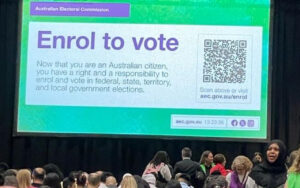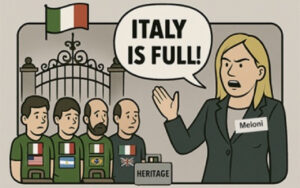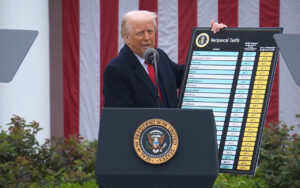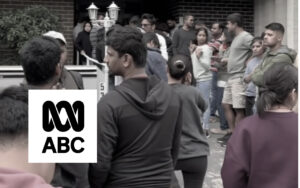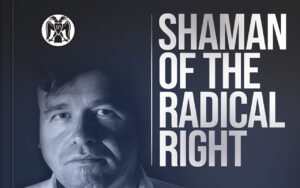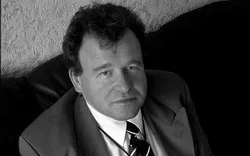Most Australians assume they enjoy the right to freedom of speech.
We believe without question that we live in a free country, and that since we have high living standards, participate in peaceful elections, and consume news from an independent media, then it must be legal for us to say whatever we like.
We shake our heads at repressive foreign regimes, we’ve read 1984, and most of us think being jailed for your ideas is something that only happens in China or North Korea.
But the reality is the Australian constitution does not protect freedom of speech or freedom of expression. We are the only western liberal democracy without a bill of rights, meaning there is nothing to stop the government from enacting laws which that prevent us from speaking freely or expressing our political opinions.
And this is exactly what has happened with the Counter-Terrorism Legislation Amendment (Prohibited Hate Symbols and Other Measures) Bill 2023, which sailed through Parliament with bipartisan support (who would gain from speaking up to oppose banning the Nazi swastika?) and passed both Houses in early December, coming into effect this week.
Our major news outlets have shown little interest, reporting on the Nazi salute ban within the broader context of “rising anti-Semitism”, the Israel-Hamas conflict, and small but active groups of neo-Nazi protesters.
No journalists or commentators – let alone the politicians who are supposed to represent our interests – appear to have even read it (We urge you to click the link above and examine it carefully).
For if they had they would have noticed some concerning details.
Forget for the moment, the absurdity of imposing a one-year jail sentence on someone for making a hand gesture or holding up a picture – these laws go much further than that.
They also cover “violent extremist material”, with a penalty of five years in jail for anyone who accesses, transmits, shares a link to access, or possesses such material.
The material must describe or depict serious violence (who decides what constitutes serious violence?), or provide instructions of engaging in serious violence, or support or facilitate serious violence (does this cover supporting Israel’s bombing campaign in Gaza?).
It also must be material intended to advance a political, religious or ideological cause, and must be intended to assist, encourage or induce a person to engage in, plan or prepare for an “intimidatory act”, do anything related to the previous, or join or even associate with an organisation doing any of the above.
It gets worse.
An intimidatory act can be as mild as a threat of violent action with the intention of intimidating a section of the public, even if that is not the main intention, or even if the material is mainly intended to do something else.
It gets worse still.
The legislation allows material that is not violent extremist material to be combined with other material that is not violent extremist material, to be determined to constitute violent extremist material when taken together.
In other words, you can now be jailed for five years in Australia for sharing a link to political content, if the government decides it supports serious violence and is intended to make someone associate with a group that is planning to intimidate a section of the public.
The wording of the bill is so vague and the scope so broad (“do a thing that relates to engaging in an intimidatory act”) that it could foreseeably be used to jail anyone with political views that are opposed by any influential section of the public that claims to be intimidated.
A similar law is used to crush dissent in China. Called “inciting subversion of state power”, it has been condemned as a “catch-all” charge used to target the government’s political opponents.
The lockdowns and bans on protesting during the Covid pandemic already made it clear that our so-called liberal democracy is more similar to the Chinese Communist system than we would like to admit, and this is another step in the Chinese direction.
Without freedom of speech, democracy is impossible.
And since free speech is dead in Australia the only conclusion that can be drawn is that democracy is too.
For a few golden decades after Federation we survived and thrived without explicit free speech rights, but we were a stable and wealthy high-trust monoculture.
Then due to mass immigration 5th columns emerged from the ethnic enclaves of our major cities, and we wrote new laws to prevent radical Islam from gaining political power in the suburbs.
Now as our society fractures and is riven by tribal conflict, those laws have been turned on us and expanded.
Australians are no longer free to hold or express political opinions the government doesn’t like, or to advocate for unpopular political or religious causes, and now we face being jailed for our beliefs.
So how we any different from the undemocratic nations we love to look down on?
